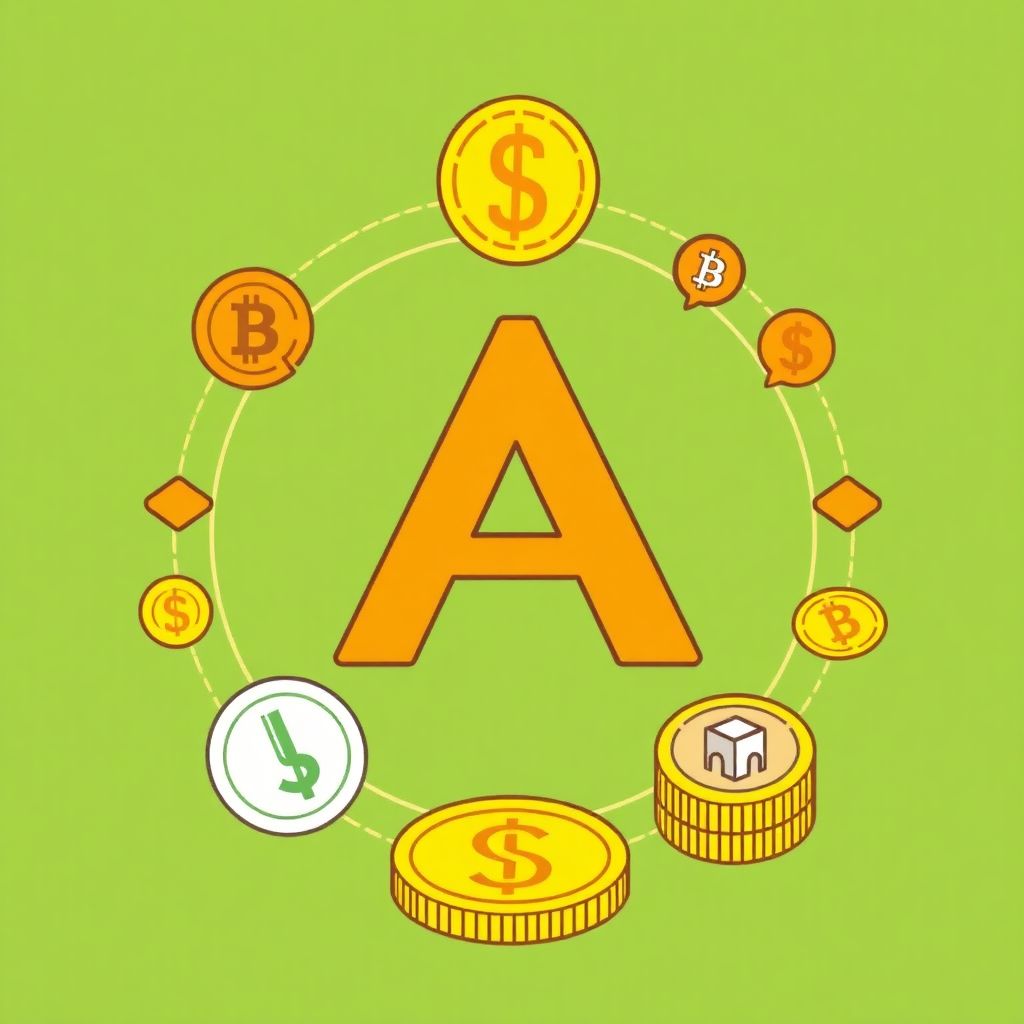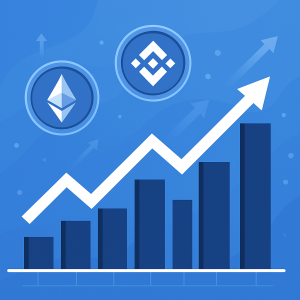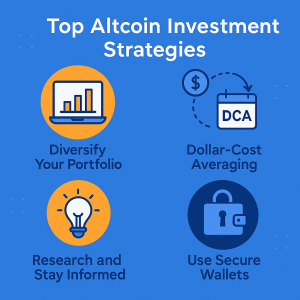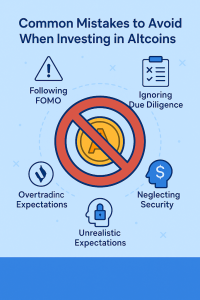The world of cryptocurrencies extends far beyond Bitcoin. In fact, thousands of alternative digital currencies, collectively known as altcoins, have emerged with unique features, technologies, and purposes. Whether you’re a beginner or an experienced investor, understanding altcoins is essential to diversify your portfolio and navigate the rapidly evolving crypto landscape.
In this comprehensive guide, we’ll explore what altcoins are, why they matter, how to evaluate them, and strategies to invest wisely. Plus, we’ll discuss current trends, risks, and opportunities that can help you make informed decisions and maximize your gains.
What Are Altcoins and Why Should You Care?
Altcoins refer to all cryptocurrencies other than Bitcoin. While Bitcoin is the first and most popular cryptocurrency, altcoins were developed to improve upon Bitcoin’s limitations or provide entirely new functionalities.
Some altcoins focus on faster transactions, enhanced privacy, or the ability to run decentralized applications (dApps) through smart contracts. Others aim to serve niche markets such as gaming, supply chain management, or finance. Understanding altcoins opens the door to innovation beyond Bitcoin and offers potential investment opportunities.
Popular altcoins include Ethereum (ETH), Binance Coin (BNB), Cardano (ADA), Solana (SOL), and Ripple (XRP). However, thousands more exist, ranging from small-cap projects with high risk and reward to large-cap coins with established communities and ecosystems.
Types of Altcoins You Need to Know
Altcoins come in various categories, each with distinct purposes and technologies. Here’s a breakdown:
- Platform Coins: These power blockchains that support dApps and smart contracts, like Ethereum, Cardano, and Polkadot.
- Privacy Coins: Focus on anonymity and secure transactions, including Monero and Zcash.
- Utility Tokens: Used within specific platforms or ecosystems, such as Binance Coin (BNB) on Binance Smart Chain.
- Stablecoins: Pegged to stable assets like the US dollar to minimize volatility (e.g., USDT, USDC).
- DeFi Tokens: Designed to facilitate decentralized finance services like lending, borrowing, and yield farming, e.g., Aave, Uniswap.
Why Invest in Altcoins? Pros and Cons
Investing in altcoins can diversify your crypto portfolio and offer substantial growth potential, but it comes with risks. Let’s examine the pros and cons:
Advantages
- Higher Growth Potential: Some altcoins have shown explosive price increases, offering opportunities for significant returns.
- Innovation: Altcoins often introduce new technologies and use cases, such as smart contracts and DeFi.
- Diversification: By spreading investments across multiple coins, you reduce exposure to Bitcoin-specific risks.
- Lower Entry Price: Many altcoins are priced lower than Bitcoin, making them accessible to new investors.
Risks
- Volatility: Altcoins can experience large price swings, sometimes more extreme than Bitcoin.
- Liquidity Issues: Smaller altcoins may have low trading volume, making it harder to buy or sell without affecting price.
- Regulatory Risks: Governments are increasingly scrutinizing cryptocurrencies, which may impact altcoins differently.
- Scams and Fraud: The crypto space has seen fraudulent projects; thorough research is essential.
How to Evaluate Altcoins Before Investing
Successful altcoin investing requires thorough analysis. Here are key factors to consider:
- Whitepaper: Review the project’s technical document to understand its goals, technology, and roadmap.
- Development Team: Check the background and credibility of developers and advisors.
- Community Engagement: Active communities on platforms like Twitter, Reddit, and Telegram signal strong support.
- Use Case and Adoption: Evaluate whether the altcoin solves a real problem and its adoption rate.
- Market Metrics: Analyze market capitalization, trading volume, supply limits, and historical price trends using tools like CoinMarketCap or CoinGecko.
- Partnerships and Collaborations: Partnerships with reputable companies can boost credibility and growth potential.
Top Altcoin Investment Strategies
Investing in altcoins requires strategy and discipline. Here are some common approaches to consider:
1. Diversify Your Portfolio
Don’t put all your eggs in one basket. Spread your investments across different altcoins to reduce risk. Include a mix of established coins like Ethereum and promising smaller projects.
2. Dollar-Cost Averaging (DCA)
Instead of investing a lump sum, buy fixed amounts regularly, regardless of price. DCA helps mitigate the impact of volatility and lowers the risk of poor timing.
3. Research and Stay Informed
Stay updated on market news, regulatory changes, and technological developments. Use trusted sources and avoid hype-driven decisions.
4. Set Clear Goals and Exit Plans
Define your investment horizon and target returns. Have exit strategies to lock profits or cut losses based on your risk tolerance.
5. Use Secure Wallets
Store altcoins safely in hardware or trusted software wallets. Avoid keeping large amounts on exchanges, which can be vulnerable to hacks.
Current Trends Shaping the Altcoin Market
The altcoin market is dynamic and influenced by technological advances and global economic factors. Here are key trends to watch:
- DeFi Expansion: Decentralized finance continues to disrupt traditional banking with lending, borrowing, and yield farming platforms.
- NFT Integration: Non-fungible tokens are opening new avenues for digital art, gaming, and collectibles using altcoins.
- Layer 2 Solutions: Scaling solutions like Polygon and Optimism reduce fees and increase transaction speed, boosting altcoin usability.
- Regulatory Developments: Clearer regulations may either encourage mainstream adoption or impose challenges.
- Green Crypto: Environmental concerns are driving interest in energy-efficient altcoins and blockchain technologies.
Common Mistakes to Avoid When Investing in Altcoins
- Following FOMO: Fear of missing out can lead to impulsive buys during hype cycles.
- Ignoring Due Diligence: Skipping research can result in investing in unreliable or scam projects.
- Overtrading: Constant buying and selling often leads to losses due to fees and market unpredictability.
- Neglecting Security: Poor wallet security or sharing private keys can lead to theft.
- Unrealistic Expectations: Expecting quick riches can cause frustration and poor decision-making.
FAQs About Altcoins
- What is the difference between Bitcoin and altcoins?
- Bitcoin was the first cryptocurrency and focuses on being a digital store of value. Altcoins are all other cryptocurrencies developed to improve or expand on Bitcoin’s features.
- Are altcoins riskier than Bitcoin?
- Generally, yes. Many altcoins have smaller market caps and lower liquidity, which can increase price volatility and risk.
- How do I buy altcoins safely?
- Use reputable exchanges, enable two-factor authentication, and transfer coins to secure wallets for long-term holding.
- Can altcoins replace Bitcoin?
- It’s unlikely Bitcoin will be fully replaced soon, but altcoins complement the ecosystem by offering additional functionalities.
- Should I invest in stablecoins?
- Stablecoins offer stability and are useful for trading and protecting against volatility but are not growth investments.
Final Thoughts
Altcoins represent a vibrant and evolving segment of the cryptocurrency market. By understanding their types, evaluating projects carefully, and applying disciplined investment strategies, you can harness the potential of altcoins while managing the associated risks.
Remember to stay informed, practice security measures, and align your investments with your financial goals. As the crypto landscape continues to innovate, altcoins offer exciting opportunities for growth and diversification.





Leave a Reply